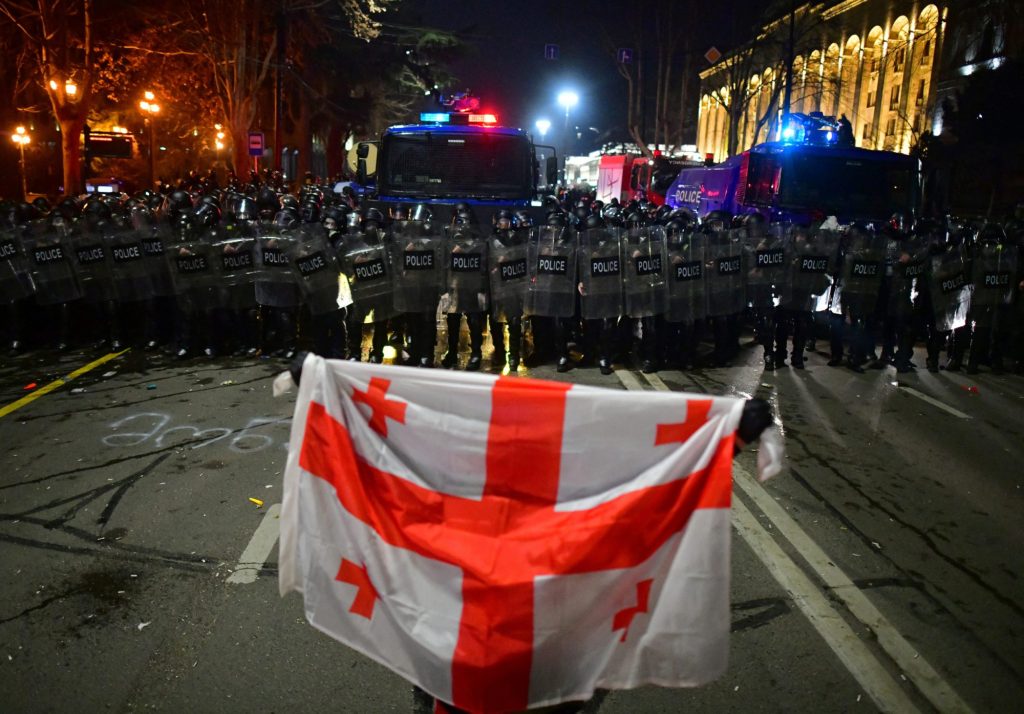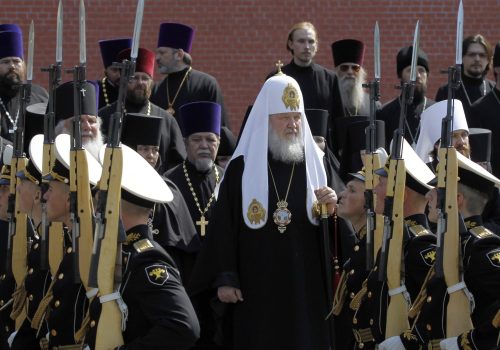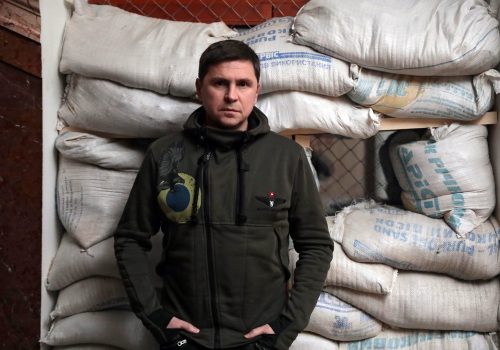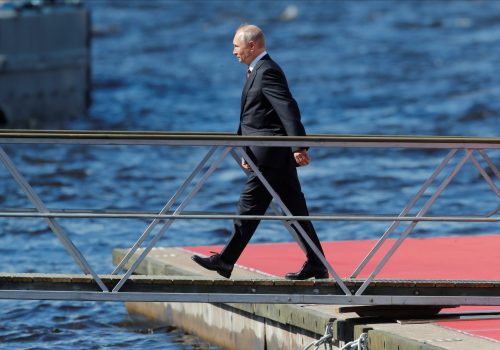With attention at NATO’s July summit in Vilnius firmly focused on Ukraine’s membership prospects, the absence of Georgian Prime Minister Irakli Garibashvili received relatively little attention. And yet this absence reflected an ongoing geopolitical shift in the wider Black Sea region with potentially major consequences for international security. While Russia is losing in Ukraine, there are growing indications that the Kremlin is winning in Georgia.
Weeks before this summer’s NATO summit, Georgian PM Garibashvili sparked international headlines by blaming NATO for the Russian invasion of Ukraine. This statement reportedly caused the alliance to deny Garibashvili a place at the summit, according to German daily newspaper Frankfurter Allgemeine Zeitung. Garibashvili’s comments were controversial but hardly exceptional. Indeed, they reflected the Georgian government’s broader turn away from Euro-Atlantic integration and toward the Kremlin.
In July 2023, Georgia signed a strategic partnership with China, signaling a further shift away from the West amid growing signs of Beijing’s tacit support for the Russian invasion of Ukraine. The Georgian government has not only embraced Beijing’s “Belt and Road” initiative, but has also indicated support for other Chinese foreign policy ventures that appear designed to counterbalance the West in general and the United States in particular. This trend should be on the radar of all Western policymakers.
Stay updated
As the world watches the Russian invasion of Ukraine unfold, UkraineAlert delivers the best Atlantic Council expert insight and analysis on Ukraine twice a week directly to your inbox.
Western leaders should know that downplaying the geopolitical changes currently taking place in Georgia is short-sighted. The West’s weak response to Russia’s 2008 invasion of Georgia is now widely seen as a major strategic blunder that emboldened Vladimir Putin and set the stage for the genocidal invasion of Ukraine. Fifteen years on, the revival of Russian influence in Georgia is helping to convince Putin that despite major setbacks, he will ultimately be able to achieve his goals in Ukraine.
While the Western world has united in opposition to Russia’s attack on Ukraine, Georgia has stood aside and has instead adopted a range of Kremlin-friendly policies. Crucially, the Georgian authorities have flatly refused to join international sanctions against Russia. Meanwhile, Tbilisi recently restored direct flights with Russia, despite calls from the EU and US not to do so. Government officials have also echoed Kremlin propaganda accusing the West of attempting to pressure Georgia into attacking Russia.
Meanwhile, critics have accused the Georgian authorities of embracing anti-democratic policies similar to those adopted by Russia in recent decades. In spring 2023, the ruling Georgian Dream party attempted to implement new laws that closely mirrored existing Russian legislation targeting civil society organizations as “foreign agents.” This initiative was eventually blocked by large-scale public protests, but efforts to demonize civil society and the country’s political opposition have continued.
Eurasia Center events

The impact of Russian propaganda in the Georgian information space is another problematic issue that is particularly evident in the rehabilitation of Soviet dictator Josef Stalin. For years, the Putin regime has promoted a revisionist approach to Stalin, portraying him a strong leader whose role in securing victory over Nazi Germany outweighs his crimes. Among Georgian audiences, Russia has successfully utilized Stalin’s Georgian roots, with the Soviet dictator emerging as a figurehead for an anti-Western strain of Georgian nationalism that aligns closely with Kremlin narratives.
In recent years, 11 new statues to Stalin have been erected in Georgia, while one recent Georgian opinion poll found almost 46% of respondents agreed that “patriotic Georgians should be proud of Stalin.” This change in attitudes toward Stalin has yet to attract much attention in the West, but it serves to highlight the vulnerability of Georgian society to Russian information warfare.
Failing to address Georgia’s slide into Russia’s geopolitical orbit would be a costly mistake. To avoid this outcome, Washington and Brussels need to adopt clear policies. Time is of the essence. As Russian influence continues to grow in today’s Georgia, Western leverage is inevitably diminishing. It is vital that the West puts its legitimate leverage to work without delay to demonstrate that further steps toward Moscow will come with considerable costs. This would help the Georgian people to democratically reverse the country’s dangerous current trajectory.
The alternative would be disastrous for Georgia, Ukraine, and Western interests. If Putin is able to reassert Russian dominance over Georgia and derail the country’s Euro-Atlantic ambitions while continuing to occupy twenty percent of the country, he will be encouraged to believe that a similar outcome will eventually prove possible in Ukraine. That would prolong the current war and pave the way for further acts of Russian aggression.
Giorgi Kandelaki is a former Georgian MP and a former Chair of the Georgian Delegation to the NATO Parliamentary Assembly. He is currently a project manager at the Soviet Past Research Laboratory (Sovlab), a think-tank dedicated to researching Georgia’s totalitarian past and countering the weaponization of history.
Further reading
The views expressed in UkraineAlert are solely those of the authors and do not necessarily reflect the views of the Atlantic Council, its staff, or its supporters.

The Eurasia Center’s mission is to enhance transatlantic cooperation in promoting stability, democratic values and prosperity in Eurasia, from Eastern Europe and Turkey in the West to the Caucasus, Russia and Central Asia in the East.
Follow us on social media
and support our work
Image: A demonstrator holds a Georgian flag in front of police officers during a protest against a draft law on "foreign agents", which critics say represents an authoritarian shift and could hurt Georgia's bid to join the European Union, in Tbilisi, Georgia. March 9, 2023. (REUTERS/Zurab Javakhadze)




